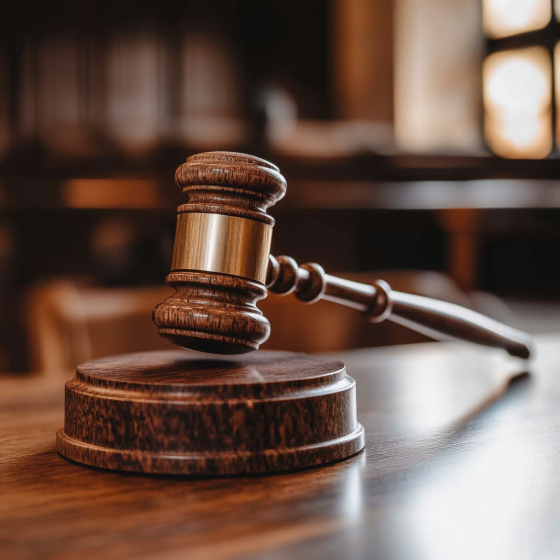When individuals step into courtrooms, they often lack a full understanding of the legal terrain. One of the most subtle and impactful dynamics at play is how judges guide litigants into pleading “pro se” without informing them of the jurisdictional implications. Many people assume representing themselves is simply a matter of declining legal counsel, but the choice between “pro se” and being “sui juris” or “in propria persona” has profound legal consequences.
Understanding the Terms: Pro Se vs. Sui Juris/In Propria Persona
- Pro Se: Latin for “on one’s own behalf,” this term indicates self-representation under the court’s rules and jurisdiction. A “pro se” litigant is still recognized as a legal entity—a “person” under the statutory framework, bound by the court’s procedural and substantive laws.
- Sui Juris: Latin for “of one’s own right,” this designation asserts an individual’s sovereignty and independence from court jurisdiction unless expressly consented to. It is often used synonymously with “in propria persona” to signal that the individual is appearing as themselves, not as a fictional legal entity like a “person” or “defendant.”
- In Propria Persona: This term specifically asserts that the individual is appearing in their personal capacity, outside the bounds of any legal fiction (such as a corporate “person”). Historically, those pleading “in propria persona” rejected the jurisdiction of the court over their inherent rights.
The Trick: How Judges Push You Toward “Pro Se”
Judges often subtly steer individuals toward pleading “pro se” without explaining the consequences of this choice. Here’s how it happens:
- Clerical Labeling: When filing paperwork, court clerks routinely categorize self-represented litigants as “pro se,” regardless of whether the litigant identifies as such. The court treats this as the default designation for anyone not using an attorney, without clarifying that other designations like “sui juris” exist.
- Judicial Language: During hearings, judges often ask self-represented individuals, “Are you representing yourself today?” or state, “You’re appearing pro se.” These statements presume “pro se” status without offering an alternative. This can lead the litigant to unknowingly consent to the court’s jurisdiction.
- Lack of Disclosure: Judges rarely, if ever, explain the difference between appearing “pro se” and “sui juris” or “in propria persona.” The omission leaves litigants unaware that by pleading “pro se,” they are implicitly accepting the court’s jurisdiction, which they might otherwise challenge or limit.
- Court Rules Favoring Pro Se: Courts have established procedural rules specifically for “pro se” litigants, creating an institutional bias toward this designation. Judges and clerks funnel “self-represented’ parties into this framework, bypassing discussions of sovereign status or jurisdictional challenges.
Why Does Jurisdiction Matter?
Jurisdiction is the foundation of a court’s authority to adjudicate a case. By pleading “pro se,” you are implicitly agreeing to the court’s jurisdiction over your person, which often means:
- Accepting the statutory framework and rules of the court.
- Foregoing challenges to the court’s authority based on constitutional or sovereignty arguments.
- Being treated as a “person” under legal definitions, which may include assumptions about your rights and obligations.
In contrast, appearing “sui juris” or “in propria persona” signals a challenge to the court’s automatic jurisdiction. It asserts your rights as a sovereign individual, not as a statutory entity created by the government. This distinction can influence the court’s ability to enforce statutory laws against you, especially in cases involving financial or contractual disputes.
How to Protect Yourself
If you wish to avoid falling into the “pro se” trap and assert your status as sui juris or in propria persona, consider the following steps:
- Educate Yourself: Understand the legal implications of different designations. Research terms like “sui juris,” “in propria persona,” and “pro se” in your jurisdiction.
- Assert Your Status Early: When filing documents, explicitly state that you are appearing “sui juris” or “in propria persona.” For example, include a declaration in your filings:
“I, [Your Name], appear in propria persona, sui juris, without waiver of any rights, remedies, or defenses.” - Challenge Jurisdiction: If appropriate, include a motion to challenge jurisdiction. This forces the court to prove it has the authority to preside over your case.
- Avoid Signing Documents Without Review: Court paperwork often includes language that implies consent to jurisdiction. Review all documents carefully before signing.
- Stay Calm in Court: Judges may question or push back against your assertion of sui juris or in propria persona status. Be prepared to explain your position respectfully and assertively.
Why Judges Don’t Tell You
Judges and court systems are designed to operate within the statutory framework. Recognizing a litigant as “sui juris” or “in propria persona” may disrupt the court’s authority or complicate procedural matters. By funneling litigants into the “pro se” framework, judges can maintain control over the case and ensure compliance with statutory laws.
Moreover, courts are not obligated to explain all potential legal strategies to litigants. The burden falls on the individual to understand their rights and options. This lack of transparency, however, can feel deceptive to those unfamiliar with the system.
Conclusion
The distinction between pleading “pro se” and asserting your status as “sui juris” or “in propria persona” is more than semantic. It’s a matter of jurisdiction, control, and the recognition of your legal status. While courts may not openly deceive litigants, their silence on these issues leaves many individuals unknowingly consenting to a system they might otherwise challenge. By understanding these dynamics and asserting your rights, you can navigate the legal system with greater confidence and autonomy.
Sourced from WALKERNOVA GROUP.




